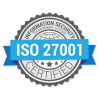Methods for optimizing costs in IT
Are you looking for ways to optimize costs in IT but not
sure where to begin?
Trying to work out the most efficient way to identify
cost savings?
In this article, we’ll look at the different methods of
optimizing IT costs and how a cost optimization solution helps you automate
them. By the time you’re done reading this, not only will you have a clear
understanding of the different methods of optimizing IT costs, but you’ll be
also on the way to setting a clear roadmap for identifying more cost savings
for your organization. Let’s dive in.
So how much could be saved?
First, let’s look at the different types of savings:
- Cost Reduction
- Cost Avoidance
Both of these are about lowering the price of services
you pay for. They’re different in the sense that cost reduction lowers the
price of services that have already been incurred, while cost avoidance refers
to steps being taken to avoid the cost being incurred at all!
Put together, I have seen savings from anywhere up to
41% of an enterprise’s total spend by following the various methods of cost
optimization. This tends to break down as 16% for cost reduction and 25% for
cost avoidance.
What methods can be used to optimize costs in IT?
There are 5 main areas you should focus on when trying
to optimize costs in IT:
1.
Rightplanning & Demand
Management => for Telecom & Cloud services, you often have
flexibility to choose different price points available within your contract (“Rightplanning”).
Through effective demand management, you can take advantage of the best prices
for how your organization uses its services today.
2.
Billing Errors => did you know that 3% of invoiced charges are likely to be billing
errors? By regularly reconciling the services, volumes, and prices from your
contract against your invoices, you can spot them before it’s too late.
3. Product & Service Management => you may have stopped using products years ago that never stopped
charging. On top of that, many organizations are paying for different products
that provide the exact same services!
4.
User Management => this is specific to Telecom (mobile & telephone) services your
organization gives to its employees. Managing these gets confusing, especially
when you start digging for answers. Are you still paying for employees who left
long ago? Are employees excessively using their services and costing the organization
an unfair amount? Are there devices sitting in someone’s desk long forgotten
about?
5. Contract Reviews & Benchmarking => through regular reviews & market benchmarking, you can identify
where to negotiate better pricing and terms with vendors, and even consolidate
the number of vendors you manage.
The partnership between IT & Procurement
IT & Procurement are closely related functions with
different skill sets. The Procurement process is an important part of the
overall IT strategy of an organization. Procurement is responsible for
acquiring the services that the IT department needs to operate and deliver
value to the business. By working together, the IT and Procurement departments
can ensure that the organization is getting the best value for its money.
What are the common challenges faced when looking to optimize costs?
Most of the pitfalls faced when implementing a cost
optimization strategy fall under the below issues:
1.
Sourcing the right documents: a complete set of contracts and detailed invoices are needed to properly
optimize costs. Invoicing systems were built for processing payments and only
stores summary copies of invoices. Contract repositories are often incomplete
(but you won’t know that until you’re at the tail end of implementation).
2.
Effectively analyzing data: even if you end up sourcing the right documents to analyze, you are faced
with an ocean of documents on your archives. How to know where the heck to
start? Invoices come in all shapes and forms and OCR software struggles with
very detailed documents. Not to mention contracts contain complicated pricing
structures and terms that are near impossible to work out.
3.
Partnering across the business: some of the most difficult stakeholders can be the departments you’re
meant to be working closely with. They’re protective of their time (as are you)
and without a solid partner strategy set at the beginning, it can be tough to
get them to help you out even when it’s for their benefit.
Knowing the right tools & technologies to use to facilitate the process
AI has been seeing some great advances lately but be
wary of accuracy. When you’re out to optimize costs in IT, you can’t afford
inaccuracies.
Completeness & data accuracy are your north star
when evaluating the right tools. This is more challenging than it seems,
because IT cost optimization involves looking across many different areas than
most software is built to support.
For example, you can get a decent Intelligent Document
Processing platform to extract data from invoices – however the platform’s
primary use case is financial processing and doesn’t deal with the detailed
entities you really need to extract.
Contract Management platforms are – as the name suggests
– built with contracts specifically in mind. They weren’t built to integrate
data between contracts and invoices.
To meet requirements for completeness & data accuracy,
you’ll need a solution that is purpose-built to reconcile data between
documents. We call this category Optimization Software, which includes
tools & technology for:
- Document Extraction:
extracting detailed data from contracts, invoices, and purchase orders
- Data Linking: linking the data
from those documents into meaningful facts and relationships
- Data Analysis: analytics that
are purpose-built for cost optimization
- Data Presentation: insights
& opportunities that make sense to everyone and are actionable. This is
critical for effective partnering in your business
We hope this helps you on your journey to setting up
your own roadmap to cost optimization in your organization!
If you’re interested to learn more about optimization
software, please get in contact with us here.


